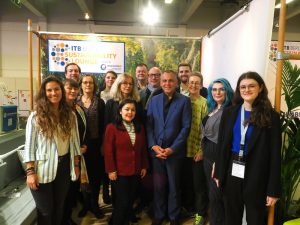
Risk prevention and crisis management in tourism
Risk prevention and crisis management are becoming increasingly important in today’s world, especially in
mascontour stands for competent consultancy and cooperation in partnership for the implementation of resilient and sustainable tourism!
We offer services from a single source and accompany you from the analysis to the concrete realisation of measures.
We have to think holistically and understand competitiveness, modernisation, sustainability and risk prevention as equally important elements for future-oriented action at destination and company level.
We are one of the world’s leading consulting firms with regard to resilient and sustainable tourism development.
We have successfully supported clients on five continents and in around 60 countries, from the local to the national level.
We stand for climate-friendly consulting, are increasingly relying on digital solutions and are also actively committed internally to resilient and sustainable corporate governance.
We follow a participatory and interactive advisory approach and already pave the way for the implementation of effective measures during our consultancy work.
The wishes of our customers are always at the centre of our attention, which means that they benefit from our cooperation in the long term.
For us, every project is a challenge in its own right, which we always meet with creative approaches and individual solutions.

We live what we do – we are what we promise – and we know what we are doing!
If we want to ensure that more tourism stakeholders put sustainability into practice, we have to make the topic tangible and illustrate it with simple examples. To this end, we have developed a give-away that uses the example of straws to raise awareness about avoiding plastic waste.
We use this give-away at trainings, workshops, coachings and other occasions. Lo and behold, the response is very positive!
If you are also interested in our sustainable giveaway, feel free to contact contact us.

Risk prevention and crisis management are becoming increasingly important in today’s world, especially in

An exciting ITB is over and it’s time to take stock. We offered the

Shortly before the start of ITB, we are delighted to announce that we have
mascontour GmbH
Office for Asia and the Pacific
Office for East Africa